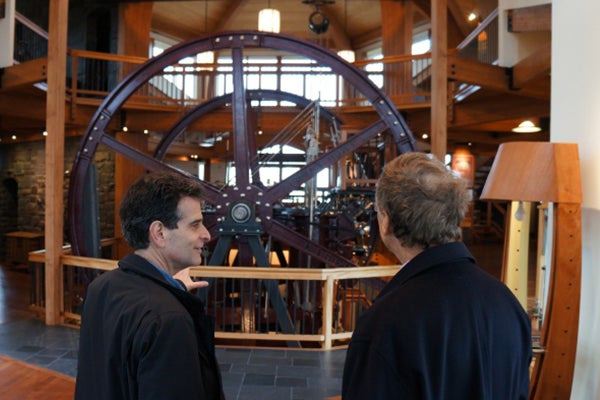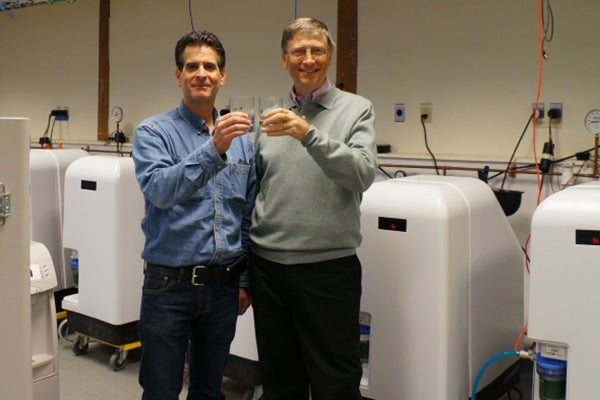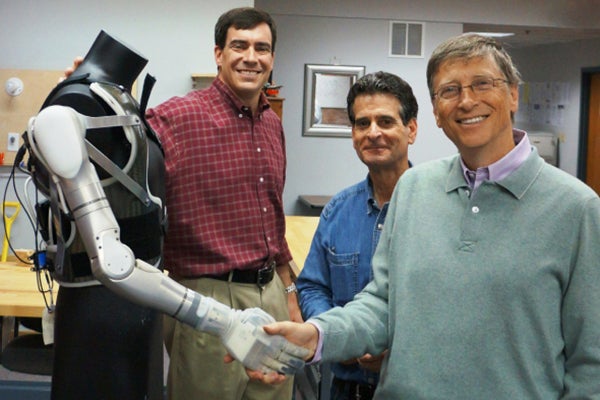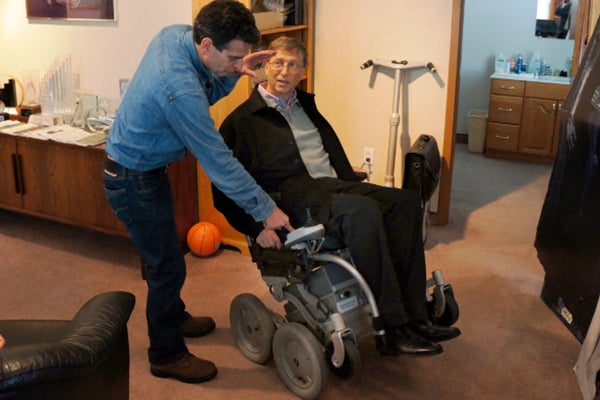Robots, Chairs, and Water
A day at DEKA research with Dean Kamen
Toward the end of last year, I got to travel to Manchester, New Hampshire, to visit one of America’s most prolific and successful inventors, Dean Kamen.


Toward the end of last year, I got to travel to Manchester, New Hampshire, to visit one of America’s most prolific and successful inventors, Dean Kamen. Dean is probably best known to the general public as the inventor of the Segway personal transporter, a two-wheeled self-balancing scooter. But his accomplishments range from innovations in heart stents and the invention of some of the most used medical infusion devices in the world, to work on revolutionizing the wheelchair (using some of the same Segway technology), and developing water purification systems for the developing world.
Going to DEKA Research and Development, Dean’s company, is a bit like visiting a cross between the Willy Wonka Chocolate Factory and Edison’s labs. DEKA is housed in converted factory buildings along the Merrimack River in Manchester, and is filled with a remarkable set of scientists, chemical, electrical, and mechanical engineers; experts in thermodynamics, particle and combustion physicists, software designers and testers. And Dean. His energy is amazing, and the scope of his ambition for using technology to solve really tough problems is inspiring.
A couple of the projects were of particular interest to me. DEKA is working on a water purification system that could be of immense use for many urban areas in the developing world. In a partnership with Coca Cola, they are conducting trials and aspire to place thousands of these machines in some of the poorest communities on earth. The project, known as Slingshot, looks to build a system that can take the dirtiest water imaginable, and turn it into perfectly safe drinking water. As they get going with this broad pilot, we’re going to be following it closely at the foundation, where we’ve got a number of projects dealing with water and sanitation underway.

Dean also showed me some of the work they’re doing on development of robotic arm prosthetics that will return functionality for people with amputations to their upper extremities. They call this Project Luke (after Luke Skywalker) and are being funded by the Defense Advanced Research Projects Agency (DARPA). There was clearly a lot of pride and energy in their progress on this complicated project. It could be hugely beneficial, particularly for wounded veterans.

While I was Dean’s guest, I got to try out that redesigned wheelchair, the iBot. After 30 seconds, I was completely comfortable, even as it balanced at eye-level on two wheels.

It was an exciting – if brief – visit. I’m a pretty optimistic guy when it comes to the ability of scientific innovation to address seemingly impossible problems. Spending a day at DEKA would convince just about anyone of the possibilities. As a country, we’re lucky to have companies like DEKA, and innovators like Dean. Ground breaking innovation makes the world a better place. And that’s good news for us all.


